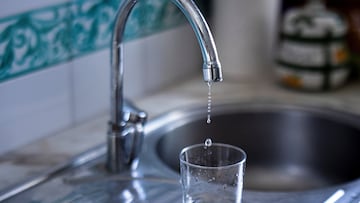How long should you run tap water before drinking it?
Public health experts advise running the tap beforehand before taking a sip.

Drinking tap water is a daily routine, especially during summer when high temperatures require continuous hydration. However, letting the water run for a while before drinking it instead of immediately after opening the tap is recommended.
Water stays in the distribution pipes and household plumbing for an extended period, which can lead to the accumulation of certain metals that can harm human and animal health. One of these metals is lead, which Congress restricted for usage in water pipes and plumbing in 1986. It is of particular concern, especially in older buildings and areas where the water distribution infrastructure still contains this highly poisonous metal. Another metal is nickel, which is not helpful for the body and can be toxic if ingested in high doses.
How long you should run the tap before using the water that comes out
According to the Environmental Protection Agency guidance on lead in drinking water, “The amount of time to run the water will depend on whether your home has a lead service line or not and the length of the lead service line.” You can also contact your local water utility for recommendations on how to flush out your pipes and find out whether you have a lead service line and, if so, its characteristics.
The agency recommends running the cold water tap for between 15 and 30 seconds to flush out the pipes of any faucet that hasn’t been used for more than six hours. Another way you can tell when you have flushed out the water that has been sitting in the plumbing is to put your hand under the water flowing from the tap until what comes out is noticeably colder.
If you need to boil water for cooking, drinking, or preparing baby formula, always use the cold water tap. Hot water can dissolve more lead more quickly.
Nickel can aggravate allergies
Some people are highly sensitive to nickel, and drinking water with high levels of this metal can cause health problems, such as aggravating allergic reactions. According to the Agency for Toxic Substances and Disease Registry at the CDC, about 10-20% of the population is sensitive to nickel.
Since 2005, the European Food Safety Authority (EFSA) has advised not to drink the first jet of tap water. In the US, the level of nickel in drinking water is less than 100 parts per billion or 0.1 mg per liter. Generally, drinking water in the US has between 2 and 4.3 ppb, while the highest levels recorded, approximately 72 ppb, were found near a large natural nickel deposit where it is mined and refined.






